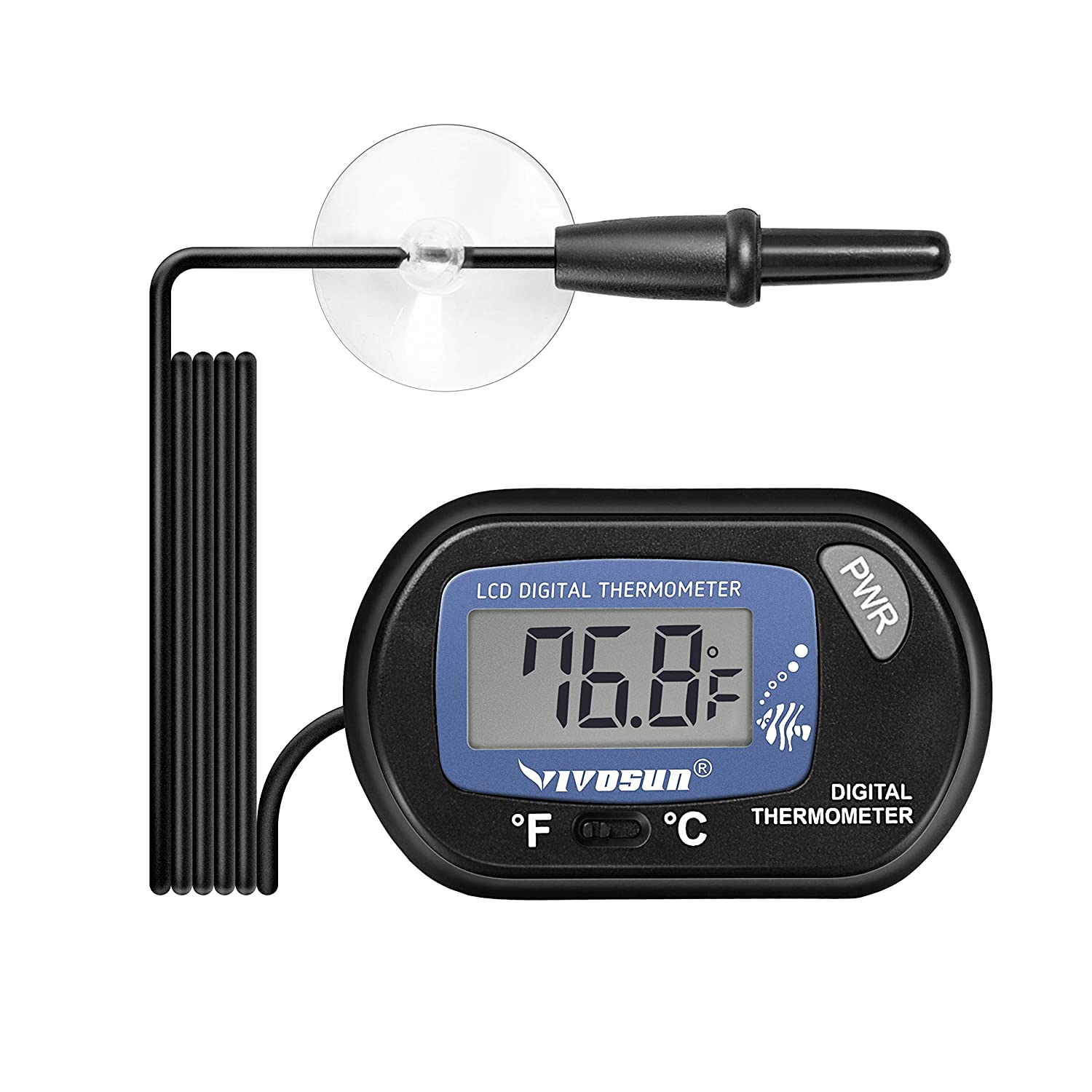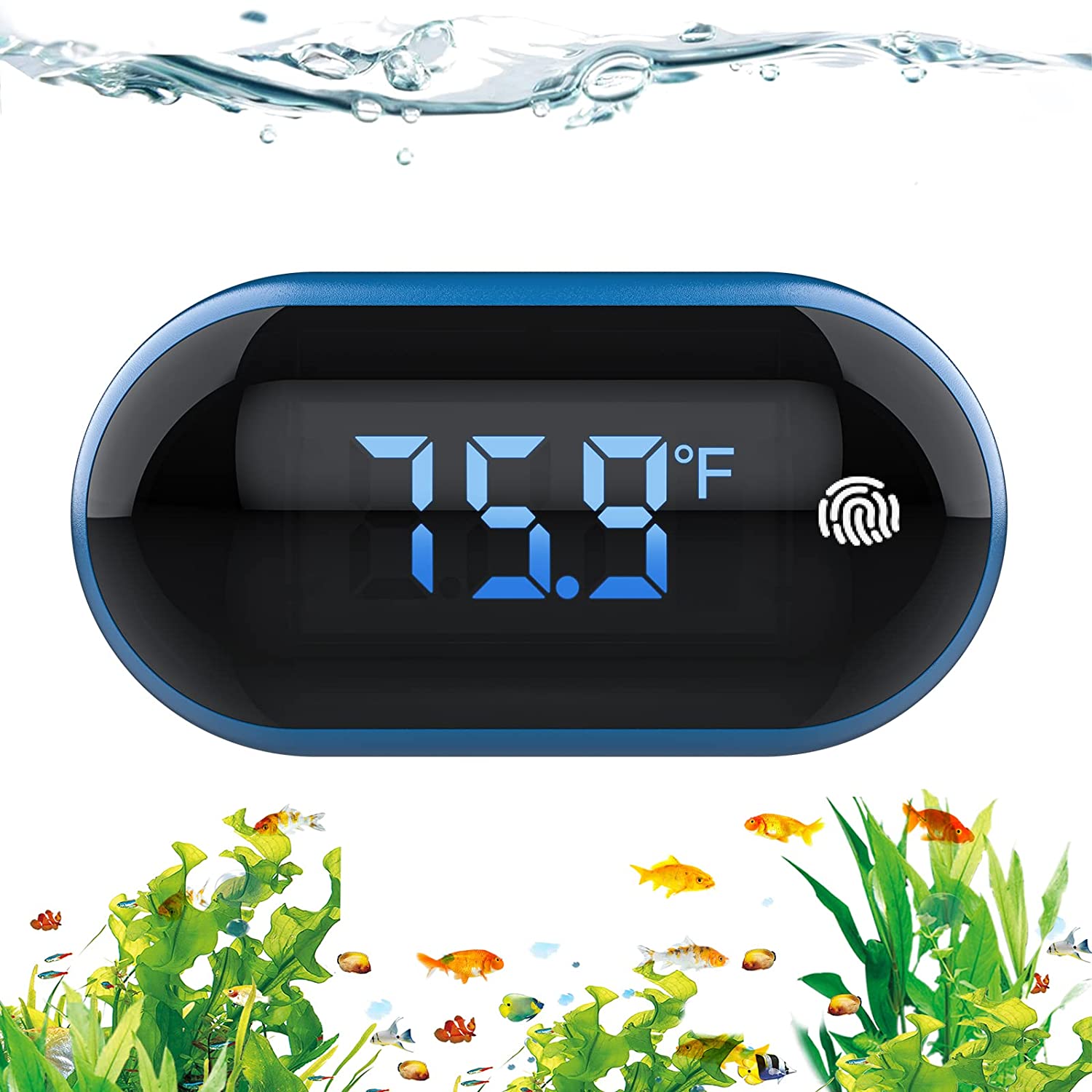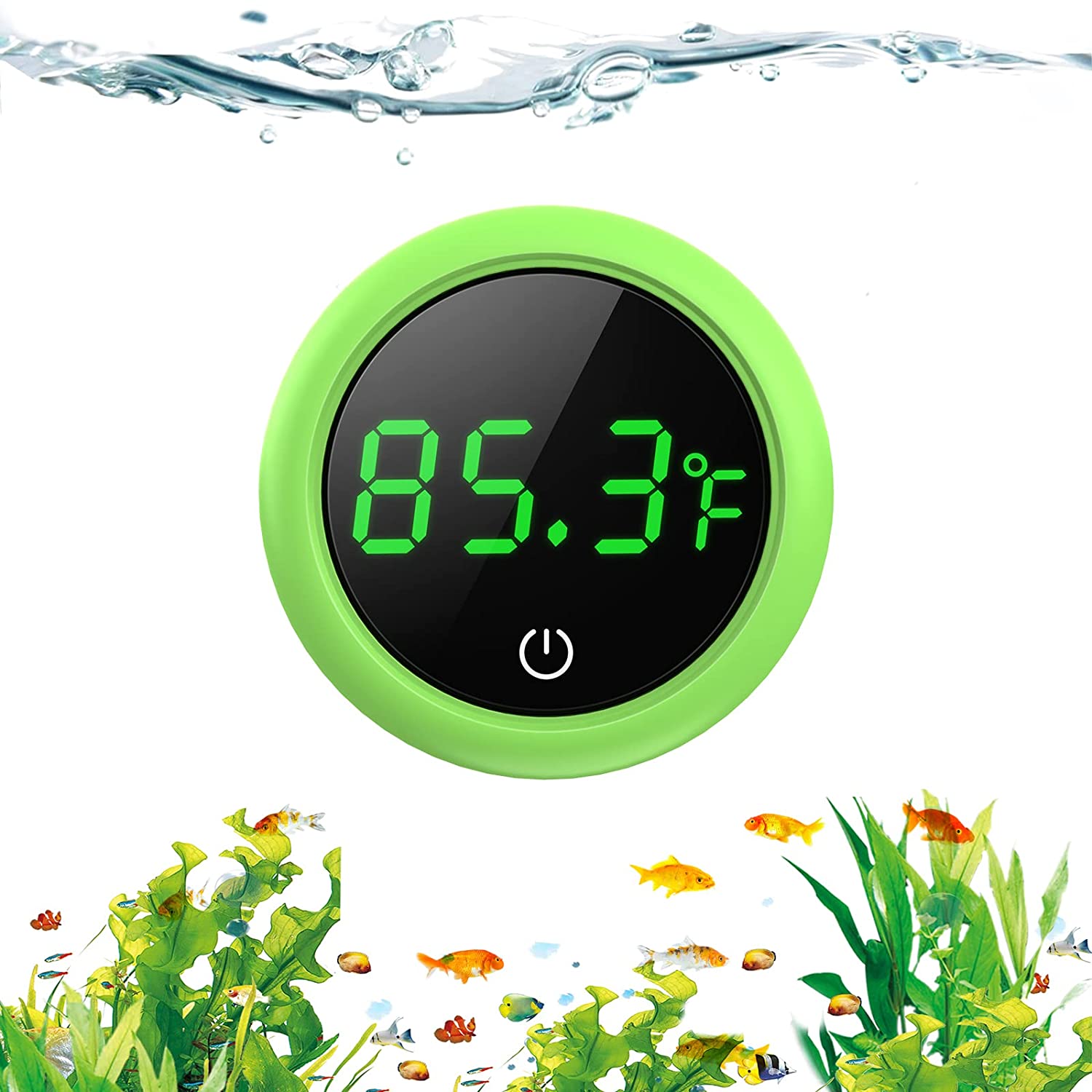Like all living organisms, an ideal temperature is essential for Betta fish. Temperature disruption is not favorable for Betta’s health. It can make the fish uncomfortable and distressed, leading to death. The ideal temperature for Betta fish is between 75-80 degrees Fahrenheit. A temperature lower than this range will slow down Betta’s immune system, which leads to multiple infections or diseases. Eventually, the fish.
To keep your Betta healthy and safe, it is essential to maintain a balanced temperature in the tank. However, knowing everything about the best temperature and how to maintain it will help you do so. Get enough information about the process and be considerate about using this information. It will keep your Betta fish healthy and happy but helps to breed better.
The Overall parameters Of Temperature For Betta Fish

While managing the temperature for Betta fish, the first thing to focus on is the basic perimeters. Normally, the temperature range that individuals prefer is between 72 degrees to 86 degrees Fahrenheit. Sometimes, people adjust the parameters to 75 to 79 degrees Fahrenheit. It is mostly related to the betta fish in the tank, its location, extreme weather, and other conditions.
| IMAGE | PRODUCT | RATING | PRICE |
|---|---|---|---|
|
EDITORS CHOICE

|
Vivosun Digital Aquarium Thermometer
|
9.9
|
Check on Amazon |
|
BUDGET PICK

|
PAIZOO Digital Aquarium Thermometer
|
9.5
|
Check on Amazon |
|
TOP CHOICE

|
PAIZOO 5S Refresh Speed Thermometer
|
9.0
|
Check on Amazon |
You have two ranges to focus on, but the ideal range is 75-79 degrees Fahrenheit. However, you can blindly work on this range as well. It is essential to check out the individual preference of your Betta fish to decide on one temperature in the tank.
Remember, the temperature in your tank can never be constant. It varies from one spot to the other. Using a temperature thermostat with a heater can help maintain balance. However, only some fish like to be in a temperate zone. Creating different temperature zones throughout the tank is helpful. It allows Betta to adjust itself according to favourable or favourite temperature zones.
Lowering water temperature for longevity

Knowing everything about the low-temperature killing and causing illness in your Betta fish, you must consider sticking to the higher temperature parameter. Well, it can be a good idea, but there are better ones.
Another significant fact here is that keeping the temperature to the lower side of the parameter can help increase the age of your Betta fish. You can extend its longevity from 6 months to 1 year. However, it’s a thorough job, and you must be precise about adjusting the temperature.
Preferably, keep the temperature between 75 degrees to 70 degrees Fahrenheit. Yes, your Betta can survive and remain healthy at 70 degrees Fahrenheit. However, going lower than this will cause you immense loss.
It is better to start with a cap of 75 degrees Fahrenheit. Gradually reduce the temperature by 1 degree at a time at the interval of one or two days. It will help Betta adjust to the change slowly and will not directly impact them. However, mentoring the Betta movement and behaviour while doing it is essential.
Symptoms Water Temperature Of Betta Tank May Be Too Low

There is no doubt that lower temperatures will increase longevity in Betta fish. However, it will impact their activity and colouration. Moreover, you need to check on your Betta to see if it’s getting adjusted to temperatures lower than 75 degrees but above 70 degrees over time. You must continuously monitor your Betta movement to ensure everything is safe.
Here are certain symptoms you should observe to notice if the water is too cold for Betta:
- The Betta is showing very less movement or activity
- It is sitting at the bottom of the tank and becoming lethargic
- Fish is not eating food properly
- You can see the slowed gill movement along with a little fin activity
All these are the signs that your tank’s temperature for Betta is too low, and it’s not happy with it. You need to bring the temperature back to higher. However, never go for an abrupt temperature change. Just like you gradually dropped it, move it slowly to the higher side.
Raising Water Temperature for Betta Brilliance of Color and Increased Activity
Betta’s sensitivity to temperature is at another level. They can sense the temperature changes frequently. It might take almost a half or full day to recognize the visible difference and show their behavior change if they reflect it.
You can keep the tank’s temperature at 75 degrees Fahrenheit for a more colorful and active Betta. Mostly, the Betta is in love with this temperature level, and you do not need to go any further with the increase. At this temperature, you might lose the longevity of Betta for about six months compared to one living below 75 degrees Fahrenheit.
But, the Betta will be more colorful and active. Keeping it short, they will be happier and more comfortable in the water at that temperature.
If the tank’s water temperature is 73 or 74 degrees Fahrenheit, go slow to increase the temperature. The one degree at a time rule applies here also. Increase the temperature and observe your Betta for one or two days before going to another raise. It will help you to adjust their temperature level at its best and keep them happy for as long as they live.
Symptoms Water Temperature Might be Too High

Betta fish reacts to hot temperatures just the way we did. In the scorching summer heat, we like to run away from the place where we are feeling hot. Betta does show some similar actions when the temperature for Betta is too high. Here are some symptoms that help you to know it.
- The massive and dramatic increase in coloration of Betta
- Hyperactive swimming and erratic actions
- Gills show redness or feel like burning
- Frequent and aggressive swimming looks like an attempt to break out the aquarium.
- Aggressive toward food when you put some in the tank
- They are more likely to snatch or fight over food from each other
- Increased food consumption
Since their temperature is high, they consume more energy and exhaust themselves. It causes them to be anxious. You have to be careful with this situation. Sometimes you may think they are just regularly active, but it’s not the case. Try lowering the temperature by one point and observe their behavior in the next few days. It will help you to manage their best water temperature.
Importance of Stable Water Temperature

Managing the best and ideal temperature for Betta fish is essential to ensure its high quality of life. It’s not just related to the betta health and many other aspects of the fish tank. Keeping a Betta in a small tank for all of its life span puts a responsibility to provide it the natural and comfortable conditions.
Keeping fish stress free
A well-maintained level keeps the fish stress free and less aggressive. Since it’s already aggressive, you can reduce its hyperactivity with a controlled temperature.
Controlling seen or unseen inhabitants
Numerous other micro inhabitants live with Betta in tanks you cannot see. These can be good and dangerous as well. The well-maintained temperature helps to control tiger growth and proliferation in water.
Better immune system
Betta grows with a healthy immune system that helps them to fight against the intruders in the tank. They can deal with infections and other problems easily.
Well documented health
Due to a balanced temperature, the Betta will have better-documented health. They will show good coloration, a superior breed, and better behaviors in the tank.
Better life span
Normally, the life span of Betta fish is around 1.5 years to 2 years. With good temperature management, you can increase it by a few months. However, they will be happy for the time they are with you.
Frequently Asked Questions
1. Why are bettas and other tropical Fish described as being cold-blooded?
Bettas and tropical Fish are marked as cold-blooded because the environment largely influences their body temperature. A change in the water temperature will impact their overall body temperature and its functions. The intense temperature, whether too cold or hot, can cause their body functions to deviate.
That is why, for such fishes, it’s essential to maintain a moderate and favorable temperature. It helps their bodies adjust to operate smoothly without impacting their internal or external activities. These fishes are not prone to intense temperature changes and cannot survive in such conditions for longer.
2. Why do water temperature changes increase the risk of disease?
Betta Fish does have a great influence on temperature change in her body and its functions. The frequent and massive changes in the water temperature risk disease in Fish. When the temperature drops, the immune system, and other organ systems in the Fish’s body slow down. It eventually redeems its tendency to fight against common threats or infections.
Moreover, it impacts the nutrients a fish absorbs from the food and water. The lower temperature causes Fish to get cold, which restricts their movement, and eventually, the organs stop working. However, an increase in temperature has a diverse impact on Fish as it can regulate more blood and distress the Fish causing them to panic. This can trigger aggression and leads to multiple risks.
3. What diseases can I expect if the water temperature goes too low?
When the water temperature for Betta Fish is too cold in the tank, it will be more likely to face numerous diseases that include swim bladder disease, swallowing gill, swallowing eyes, fin deterioration, loss of appetite, slower movements, discoloration, and more. You can observe that your Betta is not as active or energetic as it used to be. It will be eating less food and staying at the bottom of the tank.
In such conditions, any fungus will attach to the Betta and will cause more damage to the skin and fins. Eventually, you can observe the theme dying slowly. The coldness in water and their body multiplies the impact. It prevents them from consuming a good amount of food, eventually risking their lives and causing multiple challenges.
4. If the temperature is too low, is my Fish dead?
Yes, if the water temperature in your Betta fish tank drops to a dangerous level, it can cause a quick death of your Betta fish. This works even for any tropical fish around you. Specifically, in winter, you cannot risk the temperature at all. When the environment is always cold, Betta’s survival is harder if the water temperature goes down.
Reduced temperature impacts Betta’s body temperature, leading to slower movements, dullness, and lethargy. Gradually, it stops taking food and processing other functions of the body. If it’s not revived soon and you cannot get a hold of the temperature, you may find the Betta dead in the bottom of the tank or any of its decorations.
Conclusion
Having a Betta fish tank is more challenging than you think. You must create a favorable ecosystem for the Fish to ensure it will survive through all the thick and thin. Knowing the best Temperature for Betta Fish, you can make appropriate arrangements. However, more than just knowing the temperature limits are required. You have to stick to the details and make arrangements for temperature stability.
With the help of using the right temperature maintenance practices and observing the temperature change, you can save your Betta fish. Ignoring the temperature change can lead your Fish to multiple disorders, stress, diseases, infections, and even death. It’s not impossible to manage a favorable temperature for the Fish. All you need is to focus on the essentials that help you get through the process.
Be vigilant about temperature management, tank filters, decorations, and more. It will improve your Betta’s health, lifespan, and breeding.
It’s easy for humans to adjust our body temperature with the help of changing clothes, turning on or off AC or heaters, and much more. However, the Betta or other tropical fishes you have in the house are not independent. These cold-blooded fishes cannot adjust their body temperature in a changed environment.
With a slight temperature change, these living things react fast. However, dropping or raising the temperature from a normal or bearable range can cause these fishes to face diverse outcomes. From falling sick to death, anything can happen to them. It is why you must always be careful about the temperature of Betta fish.
Leave a Reply